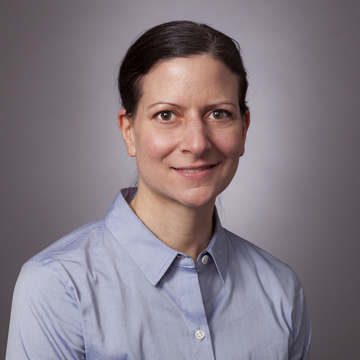Women Settle for Mediocre Sex, Scientist Finds
Women have high expectations for nearly every area of their lives, but when it comes to sex, they settle for less.
And most women keep their dissatisfaction with sex a secret, leaving their partners (let alone their doctors) in the dark, said Anita Clayton, a psychiatrist who focuses on women's sexuality at the University of Virginia Health System.
"Whereas men, if they have trouble with sex, it's a crisis. They run to the doctor and say 'I need something for this.' Women don't do that. They just sort of stuff it down and push it further down on the list," Clayton said.
With surveys and years of clinical experience, Clayton has compiled a vast collection of data on women's sex lives. Often, she said, a female patient would visit her with issues like marital problems or depression, and only when directly asked about sex, the patient would divulge dissatisfaction.
Clayton attributes several factors to a woman's lack of sexual satisfaction, including:
- Sex gets shoved to the bottom of the "to do" list for women. And when they do have sex it becomes just another task.
- Women are not getting their emotional needs met during sex. An orgasm might not be the point.
- Many women strive for unrealistic physical perfection seen in the media and are unhappy with some aspect of their physical bodies.
- Women don't ask for what they want in bed, fearing their partner will be hurt or leave them.
- Medications such as antidepressants can reduce a woman's libido and ability to reach orgasm.
What women want
Some women did complain about difficulty reaching orgasm or lack of sexual desire, but frequently they just felt an overall letdown regarding sex, Clayton said.
Sign up for the Live Science daily newsletter now
Get the world’s most fascinating discoveries delivered straight to your inbox.
- Video: Aspirin and Sex Drive
What is mediocre sex? "It tends to be this feeling that they're not satisfied and a lot of times that's on an emotional level. They might have had an orgasm. But many women don't feel like [an orgasm is] the end-all, be-all every time they have sex," Clayton explained.
Not knowing why they feel so deflated after sex, women assume it's their fault or they just don't bring up the topic to their partner. Plus, Clayton said women don't have a clear awareness of their sexual desires because of social, cultural or religious beliefs that label such female wants as shameful.
Outside pressures impact a woman's view of her body, which can make having sex even less appealing.
"Women are so obsessed with our physical appearance, and we really are trying to achieve some idealized woman's body that we see in the media. We always feel like we're lacking," Clayton told LiveScience.
Instead, they focus on the ever-growing to-do list and sex becomes another task at the very bottom of the list.
"Work and family come first. We end up putting sex low on the priority list," Clayton said. "Then when our partner initiates sex, it's just another task. I really believe that we as women accept a level of dissatisfaction that we don't need to accept."
Tips for success
To ramp up sexual satisfaction, Clayton suggests both partners can play a role.
For one, women should know that the perfect body doesn't equal good sex. "You don't have to be a sexy bombshell-looking person to have great sex. It's really not about that. We might think that Victoria's Secret models have a great sex life, but their sex life is no better than anybody else's," Clayton said.
A confident, sexy attitude and an openness to explore sensuality can breathe life into lackluster sex. Also, women can give a higher priority to sex, holding the laundry for another day.
Guys can be more open to talking about what a woman wants in bed, to the point of initiating the conversation, Clayton said. And to make more time for sex, she said, men can help a girlfriend or wife with tasks around the house.
- Top 10 Aphrodisiacs
- Video: Aspirin and Sex Drive
- The Rules of Attraction in the Game of Love
- The Sex Quiz: Myths, Taboos and Bizarre Facts
- Top 10 Amazing Facts About Your Heart
- A Brief History of Human Sex
- The Sexiest Stories of 2006

Jeanna served as editor-in-chief of Live Science. Previously, she was an assistant editor at Scholastic's Science World magazine. Jeanna has an English degree from Salisbury University, a master's degree in biogeochemistry and environmental sciences from the University of Maryland, and a graduate science journalism degree from New York University. She has worked as a biologist in Florida, where she monitored wetlands and did field surveys for endangered species. She also received an ocean sciences journalism fellowship from Woods Hole Oceanographic Institution.
